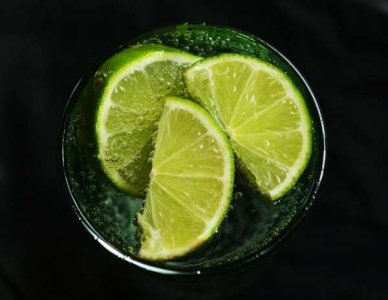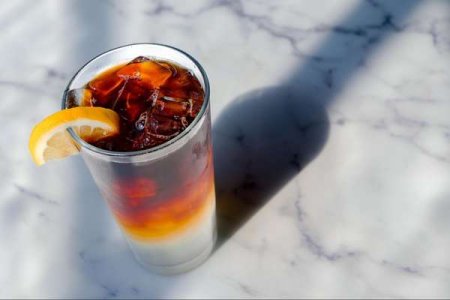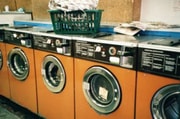Think you’re hydrated enough? This simple check could save your life
By
Maan
- Replies 2
When the temperature climbs, staying cool and hydrated becomes more important than ever. But with so much advice out there, it’s easy to get overwhelmed.
What’s really true when it comes to keeping your body safe and comfortable in the heat?
Keep reading to learn how to protect yourself and avoid common pitfalls.
Our bodies are built to handle the heat up to a certain point — a core temperature around 37°C is ideal. But if that temperature rises to 43°C, survival becomes nearly impossible.
So, as the mercury climbs, the big question on everyone's mind is: how much water do we need to drink to stay safe in the heat?
Dehydration can heighten the risk of heat-related illness, but it’s not the only factor. Even without feeling thirsty, your body can be under significant stress when dehydrated, putting vital organs at risk.
Most healthy adults have a pretty effective way of regulating their body temperature. Sweat glands in the skin release salty sweat, and as it evaporates, it cools us down.
However, this means we lose water quickly and need to replenish it regularly. On average, adults lose between two to three litres of water a day, with that amount increasing when the weather heats up.
The amount of water each person needs varies based on several factors like age, body size, and pre-existing health conditions.
However, one thing remains consistent: when we’re dehydrated, we feel thirsty — it’s our body’s natural alert to need fluids.
Mild to Moderate Dehydration Symptoms
Professor Lauren Ball, a community health and wellbeing researcher at the University of Queensland, pointed out that urine colour is one of the most reliable signs of hydration.
'Dark yellow urine [is] a very good sign that you are dehydrated.'
Pale yellow urine, she explained, is an indicator that you're staying well-hydrated, ideally close to water’s colour.
Professor Ball advised against trying to gauge hydration based on how much you feel you’re sweating. 'When you’re swimming, you’re definitely sweating, you just can’t tell because it’s going into the water,' she said.
Similarly, a breeze can make you feel less sweaty because the water evaporates more quickly.
It’s essential to note that hydration alone doesn’t guarantee protection from heat-related illnesses like heat stroke, said Professor Ollie Jay, director of the Heat and Health Research Centre at the University of Sydney.
'Staying hydrated is NOT a silver bullet to avoiding heat-related illnesses during hot weather,' he explained. 'Dehydration is an aggravating risk factor for sure, but not the root cause of all heat illnesses.'
Professor Jay recommended that those at a higher risk — such as individuals with chronic conditions, young children, the elderly, and pregnant women — should take extra precautions, avoiding physical activity during the peak heat of the day.
It’s tempting to reach for an ice-cold beverage when temperatures soar, but that might not have the cooling effect you’re hoping for.
'The reality is that the temperature of ingested water makes little to no difference to body temperature,' said Professor Jay. He added that the cooling effect of a cold drink was like trying to cool a bathtub full of hot water by adding just a small glass of cold water.
Many reach for iced coffee or tea on hot days, but the impact on hydration is often misunderstood. While caffeinated drinks do have mild diuretic effects, Professor Jay pointed out that 'there is no real evidence' to suggest they pose a significant risk.
Professor Ball agreed, saying these beverages do contain water, which contributes to hydration. 'You could make an iced tea or iced coffee. There’s all sorts of variations you could make healthy,' she added.
However, alcohol is a different story. It’s a stronger diuretic and shouldn't be relied upon for hydration. If you’re drinking, it’s vital to have a glass of water between alcoholic beverages.
Staying hydrated can be challenging, but there are tricks to make it easier. Keep a bottle of water within reach, such as by your desk or in your car. Phone apps that remind you to drink water can also help.
Professor Ball suggested spicing up your drinks with sugar-free fruit infusions, fruit-flavoured tea bags, or adding lemon or lime wedges for a refreshing twist.
If you enjoy fizzy drinks, adding bubbles with a soda machine can be a fun way to stay hydrated.
Sports drinks are only necessary when significant salt loss occurs, like after more than an hour of intense physical activity.
Most people can replace lost salt through a balanced diet. Professor Jay clarified that while electrolyte drinks can be beneficial, 'given the [high] volume of fluids that need to be replaced from sweating. It would be a generally unhealthy approach to [rehydrate] with sweet drinks considering the calories that would be consumed.'
For children or anyone dealing with mild gastro or food poisoning, diluted apple juice or oral rehydration solutions can help, said Professor Ball.
Hyponatraemia, a condition from drinking excessive water in a short time, is rare for most people. It typically occurs in extreme cases involving specific health issues, mental illnesses, or during endurance events.
'You would need to drink litres and litres and litres,' Professor Ball noted. 'The risk is much higher of us being chronically dehydrated, whether we realise it or not, from having insufficient fluid that I don’t think we should really cap our intake, as long as we’re going about just generally daily habits.'
For those engaging in prolonged physical activities like marathons or long hikes, it's crucial to know your personal hydration needs and plan accordingly.

Now that you know the essentials, what’s your go-to hydration method during a heatwave? Share your tips and experiences in the comments.
What’s really true when it comes to keeping your body safe and comfortable in the heat?
Keep reading to learn how to protect yourself and avoid common pitfalls.
Our bodies are built to handle the heat up to a certain point — a core temperature around 37°C is ideal. But if that temperature rises to 43°C, survival becomes nearly impossible.
So, as the mercury climbs, the big question on everyone's mind is: how much water do we need to drink to stay safe in the heat?
Dehydration can heighten the risk of heat-related illness, but it’s not the only factor. Even without feeling thirsty, your body can be under significant stress when dehydrated, putting vital organs at risk.
Most healthy adults have a pretty effective way of regulating their body temperature. Sweat glands in the skin release salty sweat, and as it evaporates, it cools us down.
However, this means we lose water quickly and need to replenish it regularly. On average, adults lose between two to three litres of water a day, with that amount increasing when the weather heats up.
The amount of water each person needs varies based on several factors like age, body size, and pre-existing health conditions.
However, one thing remains consistent: when we’re dehydrated, we feel thirsty — it’s our body’s natural alert to need fluids.
Mild to Moderate Dehydration Symptoms
- Thirst
- Dry mouth, lips, and tongue
- Dizziness or light-headedness, especially when standing
- Headache
- Dark urine and reduced urine output
- Severe dehydration can present more serious symptoms, including rapid heartbeat or breathing, fever, drowsiness, and confusion.
Professor Lauren Ball, a community health and wellbeing researcher at the University of Queensland, pointed out that urine colour is one of the most reliable signs of hydration.
'Dark yellow urine [is] a very good sign that you are dehydrated.'
Pale yellow urine, she explained, is an indicator that you're staying well-hydrated, ideally close to water’s colour.
Professor Ball advised against trying to gauge hydration based on how much you feel you’re sweating. 'When you’re swimming, you’re definitely sweating, you just can’t tell because it’s going into the water,' she said.
Similarly, a breeze can make you feel less sweaty because the water evaporates more quickly.
It’s essential to note that hydration alone doesn’t guarantee protection from heat-related illnesses like heat stroke, said Professor Ollie Jay, director of the Heat and Health Research Centre at the University of Sydney.
'Staying hydrated is NOT a silver bullet to avoiding heat-related illnesses during hot weather,' he explained. 'Dehydration is an aggravating risk factor for sure, but not the root cause of all heat illnesses.'
Professor Jay recommended that those at a higher risk — such as individuals with chronic conditions, young children, the elderly, and pregnant women — should take extra precautions, avoiding physical activity during the peak heat of the day.
It’s tempting to reach for an ice-cold beverage when temperatures soar, but that might not have the cooling effect you’re hoping for.
'The reality is that the temperature of ingested water makes little to no difference to body temperature,' said Professor Jay. He added that the cooling effect of a cold drink was like trying to cool a bathtub full of hot water by adding just a small glass of cold water.
Many reach for iced coffee or tea on hot days, but the impact on hydration is often misunderstood. While caffeinated drinks do have mild diuretic effects, Professor Jay pointed out that 'there is no real evidence' to suggest they pose a significant risk.
Professor Ball agreed, saying these beverages do contain water, which contributes to hydration. 'You could make an iced tea or iced coffee. There’s all sorts of variations you could make healthy,' she added.
However, alcohol is a different story. It’s a stronger diuretic and shouldn't be relied upon for hydration. If you’re drinking, it’s vital to have a glass of water between alcoholic beverages.
Staying hydrated can be challenging, but there are tricks to make it easier. Keep a bottle of water within reach, such as by your desk or in your car. Phone apps that remind you to drink water can also help.
Professor Ball suggested spicing up your drinks with sugar-free fruit infusions, fruit-flavoured tea bags, or adding lemon or lime wedges for a refreshing twist.
If you enjoy fizzy drinks, adding bubbles with a soda machine can be a fun way to stay hydrated.
Sports drinks are only necessary when significant salt loss occurs, like after more than an hour of intense physical activity.
Most people can replace lost salt through a balanced diet. Professor Jay clarified that while electrolyte drinks can be beneficial, 'given the [high] volume of fluids that need to be replaced from sweating. It would be a generally unhealthy approach to [rehydrate] with sweet drinks considering the calories that would be consumed.'
For children or anyone dealing with mild gastro or food poisoning, diluted apple juice or oral rehydration solutions can help, said Professor Ball.
Hyponatraemia, a condition from drinking excessive water in a short time, is rare for most people. It typically occurs in extreme cases involving specific health issues, mental illnesses, or during endurance events.
'You would need to drink litres and litres and litres,' Professor Ball noted. 'The risk is much higher of us being chronically dehydrated, whether we realise it or not, from having insufficient fluid that I don’t think we should really cap our intake, as long as we’re going about just generally daily habits.'
For those engaging in prolonged physical activities like marathons or long hikes, it's crucial to know your personal hydration needs and plan accordingly.
Key Takeaways
- Staying hydrated is crucial for health during hot weather, but it's not the only factor in preventing heat-related illnesses.
- The colour of urine is a good indicator of hydration; dark yellow means dehydration, while pale yellow suggests adequate hydration.
- Cold drinks don't significantly cool the body from the inside; maintaining sweat for evaporative cooling is more effective.
- Sports drinks are only necessary for intense physical activity, and excessive water intake can lead to a rare condition called hyponatraemia.
Now that you know the essentials, what’s your go-to hydration method during a heatwave? Share your tips and experiences in the comments.









